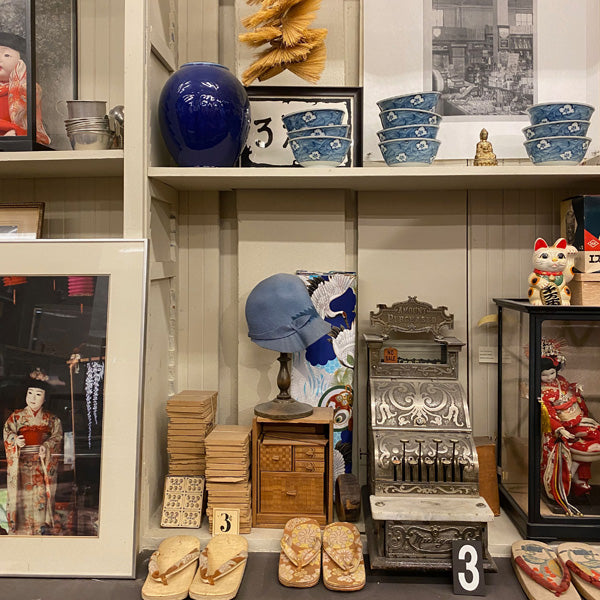KOBO Seattle | since 1995

By Lawrence Yutaka Matsuda, Ph.D.
My mother tows me in the red
Radio Flyer to Higo’s in Japantown
when the Smith Tower looms tallest
west of the Mississippi
and the sidewalks on Jackson Street
are knotty planks.
I drop pebbles between the sidewalk cracks.
Imagine them tumbling to China.
Shopkeeper bells chime our arrival.
A silk kimono from “Occupied Japan”
drapes a blond mannequin.
The family dog curls near the cash register
and beside it, wind-up toys.
Back room curtains slide open and Matsuyo,
the family matriarch, emerges wearing an apron.
Her grey hair is pulled into a bun. She
smiles like Eleanor Roosevelt, all teeth.
Kawaii ne, she greets me, “cute” in Japanese.
Opens a box of Tomoe Ame candy,
carefully extracts one square chunk of sweetness
wrapped in translucent rice paper,
hands me the prized morsel.
Before the War, Chiyoko, her second daughter,
succumbs quietly to tuberculosis upstairs.
Matsuyo draws the blinds,
unwraps a bar of Ivory soap, dips
a sponge in warm water,
and bathes her daughter’s body.
She fixes Chiyo’s hair in a French Roll,
dresses her in white for the mortuary.
Sanzo, Matsuyo’s husband, dies after
their return from Minidoka,
when Made in Japan means cheap and shoddy
and Issei are forbidden to become US citizens.
The Japanese community is broken.
Sento bath houses stand silent, toy prizes disappear
from Tomoe Ame boxes and Japanese flee
to suburban split level homes and strip malls.
For decades the family waxes the linoleum floors
and prepares meals in the backroom
next to the family shrine.
Sanzo’s dream of a family business
that mends the community
survives to a time when
Made in Japan means quality,
sidewalks of Jackson Street are concrete,
pebbles stop falling to China.
Green tea leaves steep in the backroom
when Sanzo beckons.
Matsuyo rises, apron in hand –
slides the curtain for the final time.
Shopkeeper bells chime, the sound lingers
then fades. The Higo legacy passes to
Ayako, Kazuichi, Masako,
Paul, and now John and Binko-san.
Five and dime memorabilia
sparkle next to arts and crafts.
Higo evolves into the Kobo Gallery,
magnet for a community dispersed.
It is a vortex where togetherness binds us as family.
I find sanctuary and peace among the hive of memories.
Cup my hands like a child,
Catch and savor the sweet morsels of acceptance.
From A Cold Wind from Idaho, Black Lawrence Press, New York 2010
Read an interview with Lawrence and his new book My Name is Not Viola, on the History News Network, here.
Some of Lawrence's books are available for purchase on our website:

